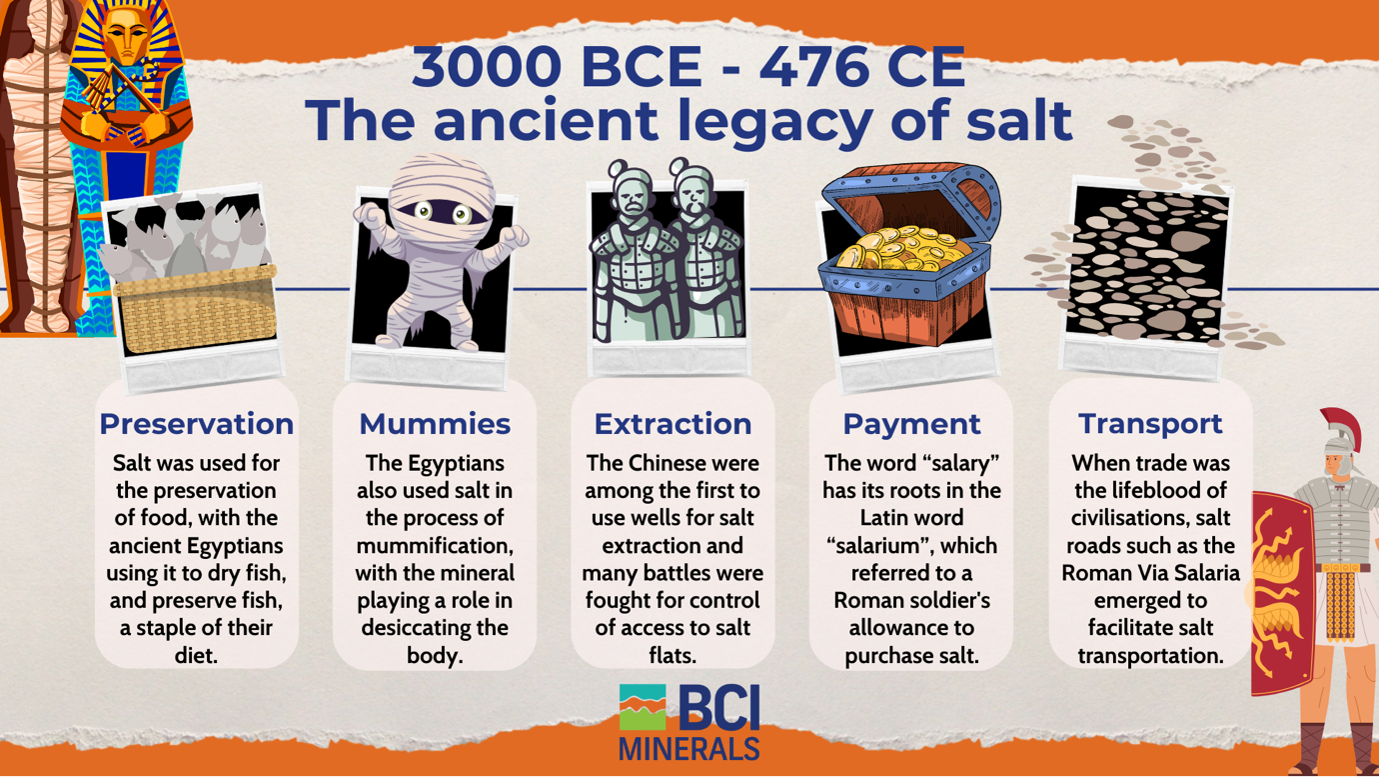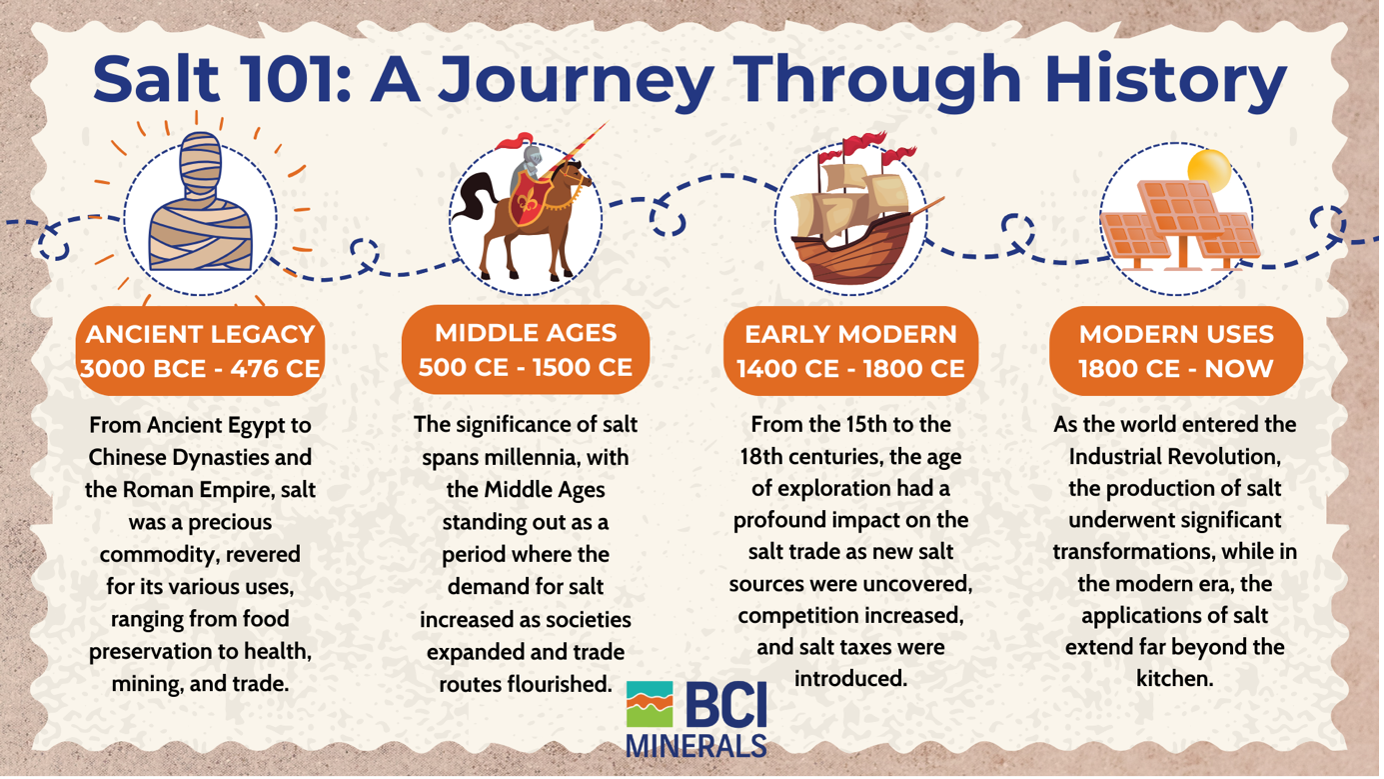
Salt, a modern staple on every dining room table, has played a profound and multifaceted role throughout the archives of human history.
To better understand the value of this critical resource today, we journey back in time to travel the salt road.
First, we visit ancient times when salt was a precious commodity, revered for its various uses, ranging from food preservation to health, mining, and trade.
Early Civilisations: Mesopotamia and Egypt (3000 BCE - 500 BCE)
The history of salt can be traced back to the cradle of civilisation, Mesopotamia, where the earliest evidence of salt extraction dates to around 3000 BCE.
Long before the invention of refrigeration, salt was predominantly used for food preservation in a region where temperatures soared.
One of the earliest recorded uses of this comes from ancient Egypt, with the Egyptians using it to dry and preserve fish, a staple of their diet.
The process, known as salting or brining, involved coating fish in salt, preventing bacterial growth and extending the food’s shelf life.
The Egyptians also used salt in the intricate process of mummification, with the mineral playing a crucial role in desiccating the body, preventing decomposition, and aiding in the preservation of the deceased for the afterlife.
The salt used in mummification was a symbol of purification and resurrection, reflecting the spiritual significance attributed to this mineral.
Salt was not only essential for preservation, but it also became a valuable trade commodity. Ancient Mesopotamians and Egyptians used salt as a form of currency, exchanging it for goods and services.
China: The Ancient Salt Wells (600 BCE - 600 CE)
In ancient China, salt played a crucial role in the development of the empire, with the Chinese among the first to use wells for salt extraction.
Salt was produced from underground brine deposits and was such a valuable commodity that many battles were fought for control of access to salt flats.
About 4700 years ago, the Chinese Png-tzao-kan-mu, one of the earliest known writings, recorded more than 40 types of salt and described methods of extracting it and preparing it for human consumption.
Salt taxes, instituted during various Chinese dynasties, provided a substantial source of revenue for the government.
The ancient Chinese also traded salt for tea, leading to the creation of the Tea and Horse Caravan Road.
Rome: Salting the Empire (500 BCE - 476 CE)
The Roman Empire recognised the strategic importance of salt, particularly in the preservation of food for its vast legions.
Salt was used to preserve meats, including fish and pork, crucial for sustaining their armies during military campaigns.
The word “salary” even has its roots in the Latin word “salarium”, which referred to a Roman soldier's allowance to purchase salt.
During a time where trade was the lifeblood of civilisations, salt roads such as the Roman Via Salaria emerged, facilitating the transportation of salt from coastal areas to the inland regions of the empire and the Adriatic coast.
These trade routes also facilitated cultural exchanges and connected people from various regions.
-
As we continue to journey through time to explore the origins and value of salt, we approach the Middle Ages where salt influenced commerce and health practices.

